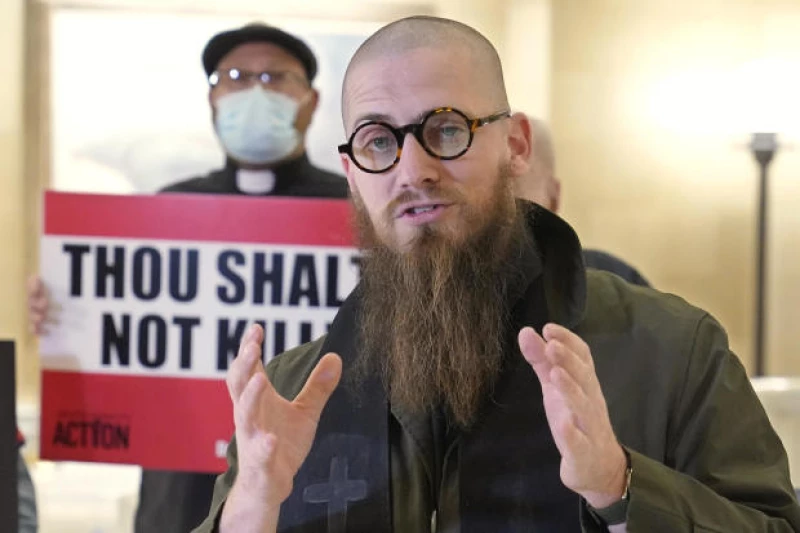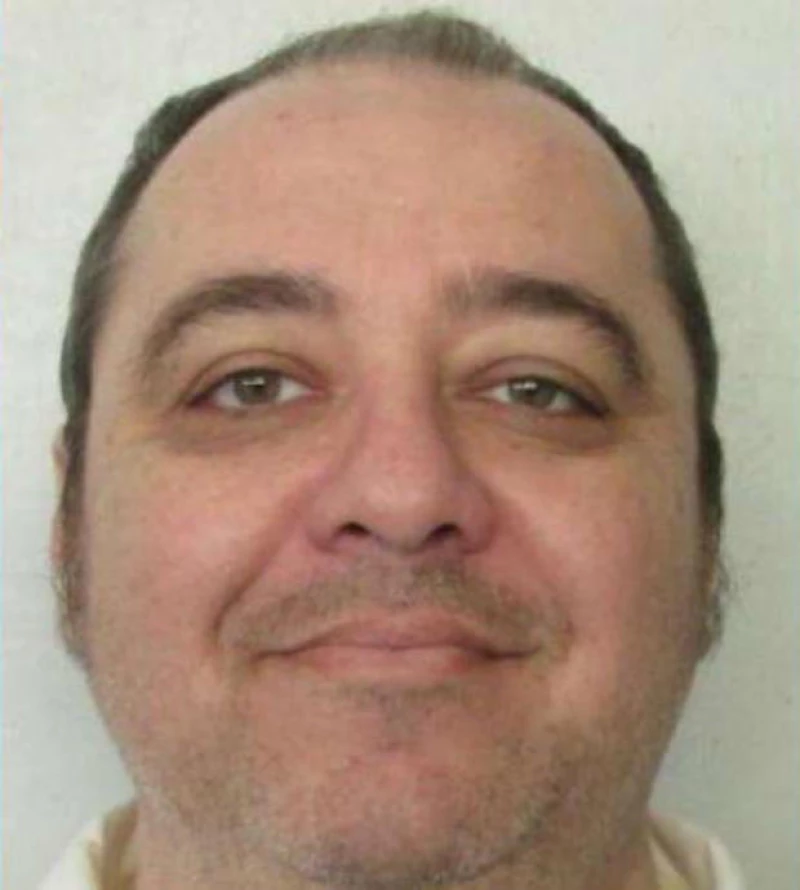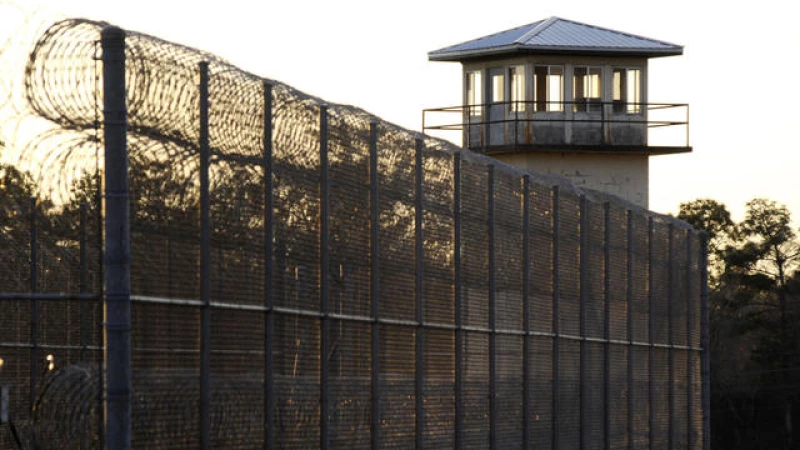Alabama is preparing to employ a new method of execution using nitrogen gas following botched attempts at lethal injections last year. But a spiritual adviser to death row inmates told CBS News he filed a lawsuit last week challenging the method that even veterinarians have refused to use, citing its "distressing" effects and potential lethal hazards to others who are present.
Rev. Dr. Jeffrey Hood's lawsuit claims that an execution using a mask to give a prisoner pure nitrogen gas to breathe, causing them to suffocate, could place his life at risk and prevents him from properly administering spiritual support to condemned inmate Kenneth Eugene Smith.
Hood, a vocal opponent of the death penalty who works with the group Death Penalty Action, claims in his lawsuit that the state's use of nitrogen hypoxia as an execution method "presents potentially significant dangers to his own life, and violates the religious liberties of both himself and Mr. Smith."

States are facing challenges in conducting executions due to the refusal of medical equipment and drug manufacturers to sell their products to state executioners, resulting in a scarcity of lethal injection drugs. In response, some state legislators are considering alternative methods such as firing squads if the necessary materials cannot be obtained.
Three states, namely Alabama, Mississippi, and Oklahoma, are now turning to nitrogen hypoxia as a legally acceptable alternative. Alabama is set to become the first state to carry out an execution using this method on January 25, 2024.
Nitrogen hypoxia involves the use of a mask to administer pure nitrogen gas to the prisoner. Alabama authorities claim that the prisoner will be able to breathe normally, but will eventually lose consciousness due to the lack of oxygen and die shortly thereafter. However, critics express concerns about the uncertainty and potential risks associated with this method, including its impact on inmates, the execution team, spiritual advisers, and witnesses.
Alabama's ability to carry out executions effectively has been questioned in recent years. The state has experienced four botched executions since 2018, leaving some inmates alive and requiring the entire process to be repeated at a later date.
One of the prisoners is Kenneth Eugene Smith. He was sentenced to death in 1996 for the murder-for-hire killing of a pastor's wife. In November 2022, Smith's initial attempt at execution failed. In a court filing, Smith claimed that he experienced sharp and intense pain during the lethal injection process, feeling as though he were being stabbed in the chest. Now, one year later, Smith is once again facing the death chamber. He and his lawyers have requested an alternative method of execution, other than lethal injection.
In heavily redacted documents, the state has outlined a plan to use nitrogen gas for the execution. The plan includes safety measures such as oxygen-deficient sensors and testing them prior to the execution.
However, the documents also highlight potential dangers. In the unlikely event that the hose supplying breathing gas to the mask were to detach, a small area of free-flowing nitrogen gas could pose a risk. Additionally, overpressure could result in a small area of nitrogen gas displacing the oxygen around the inmate's face and/or head.
In a recent development, an official named Hood has raised concerns about the potential dangers associated with a particular method, stating that it hinders his ability to effectively carry out his duties and even puts his life at risk. As part of the requirements, Hood was compelled to sign a waiver acknowledging that he must maintain a minimum distance of three feet from an individual named Smith. Hood expressed that he had to have discussions with his family about the potential risks and felt pressured when signing the document.
Interestingly, in 2022, the Supreme Court issued a ruling stating that spiritual advisers must be allowed to audibly pray and lay hands on inmates in the death chamber. Hood emphasized that the Supreme Court's decisions are not mere suggestions, but binding rulings, and he criticized Alabama for seemingly disregarding the law. He also highlighted the constantly changing rules and procedures surrounding the method, referring to it as a "tyranny of vagueness."
Responding to allegations of unpreparedness or unprofessionalism, the Alabama Department of Corrections stated that their staff denies any such claims. They affirmed that their personnel undergo extensive training and routinely practice all aspects of their job responsibilities. The department asserted that court-ordered executions are carried out professionally and with utmost respect for the process and all individuals involved.

The department declined to comment on the specific waiver signed by Hood, citing "pending litigation" as the reason for their silence.
Hood has served as a spiritual adviser to several death row inmates — sometimes drawing criticism for his tactics — and has been present at five executions this year alone. He was present for Casey McWhorter's execution by lethal injection in November at Alabama's Holman Correctional Facility, which is the state's primary housing facility for death row inmates and the only facility in the state allowed to carry out executions.
He explained the emotional and oftentimes physical toll the relationships and process can have on him. When the execution occurs, he said, "my soul's with them… and our souls [are] being ripped apart."







